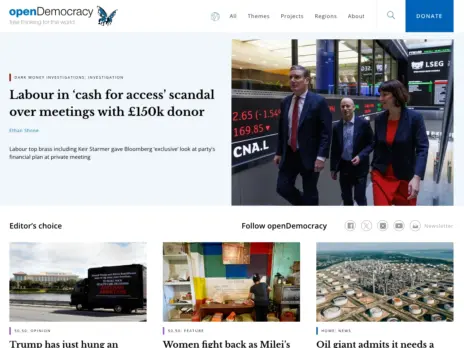
There is a serious need for research to examine and possibly reverse the growing decline in court reporting across the country, a media law lecturer has warned.
The serious decline in court reporting threatened public confidence in the courts because the public was not being kept informed, and was not being reassured that justice was being done, Mark Hanna, co-author of McNae’s Essential Law for Journalists, told a meeting to mark the publication of the 20th edition of the book.
Hanna said that as a reporter he had spent a long time in courts – and was now aware that court reporting was in serious decline.
“Twenty years ago in any major city there would be a reporter for the Crown Court and another reporting covering the magistrates’ courts,” he said. “That is not happening any more.”
There could be a number of reasons for this – shortages of resources and manpower because of the current crisis in the newspaper industry were among the reasons.
But other factors, such as procedural changes in the courts themselves, might also have had an effect.
“There is a great need for research to be done to find out the extent to which court reporting has declined,” said Hanna, who lectures in media law at Sheffield University and chairs the law board of the National Council for the Training of Journalists and is its chief examiner.
“I wonder if the amount of reporting restrictions is an important factor,” he said, adding that news editors were more likely to be hesitant about sending young reporters to court because of the growing complexity of the reporting restrictions.
Reporting restrictions had become more and more complicated, Hanna said, adding: “How much more can we expect these trainees and students to take on board?
“At the moment the bits and pieces are very difficult to teach – and I feel the complexity of the law itself may be a factor in the decline of court reporting.”
What was also needed was a codified system bringing all the reporting restrictions together.
David Banks, Hanna’s co-author on McNae, and senior lecturer in media law at Sunderland University, said there was a growing contradiction in the law arising from the development of the Reynolds defence of responsible journalism and the development of the law of privacy.
The Reynolds defence set standards for responsible journalism, he said.
One of these was that a journalist writing about an individual or company should put any allegations to that person or firm to give them the opportunity to state their case.
The individual who was subject to allegations would not be able to get an injunction to stop publication on the grounds that they were defamatory of him.
But, said Banks, the growing law of privacy now gave such individuals the opportunity to get injunctions blocking publication of a story on the grounds that the subject matter of the story was private, or information had been given to the journalist in breach of an obligation of confidence or privacy.
“If any of the material you have amassed in a potentially defamatory piece which you are putting to the claimant and they perceive any possible breach of confidence they can get an injunction to stop you,” he said. “Privacy has become the new libel.”
Email pged@pressgazette.co.uk to point out mistakes, provide story tips or send in a letter for publication on our "Letters Page" blog






